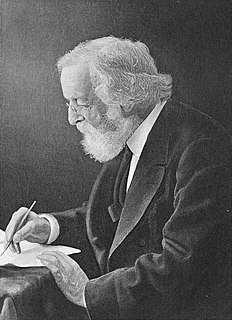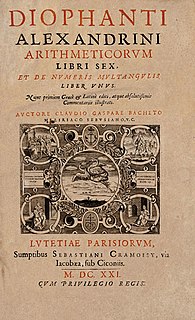Цитата Генри Дэвида Торо
Поэт — не нежный комочек волшебного происхождения, которому для своей защиты нужны особые институты и указы, а самый стойкий сын земли и неба, и по его большей силе и выносливости его падающие в обморок товарищи узнают в нем Бога. В конце концов, именно поклонники красоты проделали настоящую первопроходческую работу в мире.
Связанные цитаты
Самоправедность восклицает: «Я не буду спасен Божьим путем; я проложу новую дорогу к небу; я не преклонюсь перед Божьей благодатью; я не приму искупление, которое Бог совершил в лице Иисуса; я буду моим собственным искупителем; я взойду на небеса своей собственной силой и прославлю свои собственные заслуги». Господь очень гневается на самодовольство. Я не знаю ничего, против чего более пылала бы Его ярость, чем против этого, потому что это касается Его в очень нежном месте, оскорбляет славу и честь Его Сына Иисуса Христа.
Поэту нужна почва в народной традиции, на которой он мог бы работать и которая, опять же, могла бы сдерживать его искусство в рамках должной умеренности. Оно удерживает его среди людей, дает основание для его здания; и, предоставляя ему так много работы, оставляет его на досуге и в полной силе для дерзости своего воображения.
Когда сердце человека холодно и равнодушно к религии, когда его руки никогда не заняты Божьим делом, когда его ноги не знакомы с Божьими путями, когда его язык редко или никогда не используется в молитве и хвале, когда его глаза слепы. к красоте Царства Небесного – когда его ум полон мира и не имеет места для духовных вещей – когда эти знаки находятся в человеке, слово Библии является правильным словом, чтобы использовать о нем, и это слово «мертвый».
Если бы вы увидели Атласа, великана, который держит мир на своих плечах, если бы вы увидели, что он стоит, кровь течет по его груди, его колени подгибаются, его руки дрожат, но он все еще пытается удержать мир в воздухе из последних сил, и чем сильнее он старался, тем тяжелее мир ложился на его плечи. - Что бы ты ему сказал? Я... не знаю. Что... он мог бы сделать? Что бы ты ему сказал? Пожимать плечами.
Что нам нужно только признать БОГА близко присутствующим с нами, обращаться к Нему каждую минуту, чтобы мы могли просить Его помощи для познания Его воли в вещах сомнительных, и для правильного исполнения того, что, как мы ясно видим, Он требует от нас, предлагая их Ему, прежде чем мы их делаем, и благодарить Его, когда мы сделали.
Во Христе мы видим силу достижения и силу терпения. Он двигался со спокойной величественностью, как солнце. Кровавый пот, терновый венец и крест были полны Его глаз; но Он был послушен до смерти. В Его совершенном самопожертвовании мы видим совершенство силы; в любви, побудившей ее, мы видим совершенство красоты. Это сочетание самопожертвования и любви должно быть заложено в каждом христианине; и когда он будет в своем духе полным в нем, тогда он также будет совершенен в силе и красоте.
Кто будет винить его? Кто не будет втайне радоваться, когда герой снимет с себя доспехи, остановится у окна и взглянет на жену и сына, которые, сначала очень далекие, постепенно подходят все ближе и ближе, пока губы, и книга, и голова не предстанут перед ним ясно, хотя все еще прекрасный и незнакомый из-за напряженности его одиночества, потери веков и гибели звезд, и, наконец, сунув свою трубку в карман и склонив перед ней свою великолепную голову, - кто будет винить его, если он отдает дань уважения красоте мира?
Его эпитафия: В этой гробнице Диофант, Ах, какое чудо! И гробница повествует научно меру его жизни. Бог соблаговолил, чтобы он был мальчиком шестую часть своей жизни; когда прибавился двенадцатый, на его щеках появилась борода; Он зажег для него свет брака после седьмого, а на пятом году после женитьбы подарил ему сына. Увы! поздно родившийся и несчастный ребенок, когда он достиг меры половины жизни своего отца, холодная могила взяла его. Утешая свое горе этой наукой о числах в течение четырех лет, он дожил до конца своей жизни.
Нет Бога отдельно от вас, нет Бога выше вас, настоящего «вы». Все боги для вас — маленькие существа, все представления о Боге и Отце на небесах — лишь ваше собственное отражение. Сам Бог является вашим образом. «Бог сотворил человека по образу Своему». Это неправильно. Человек создает Бога по образу своему. Это правильно. Во всей вселенной мы создаем богов по образу своему. его; и когда эта мечта приходит, мы любим ее!

































